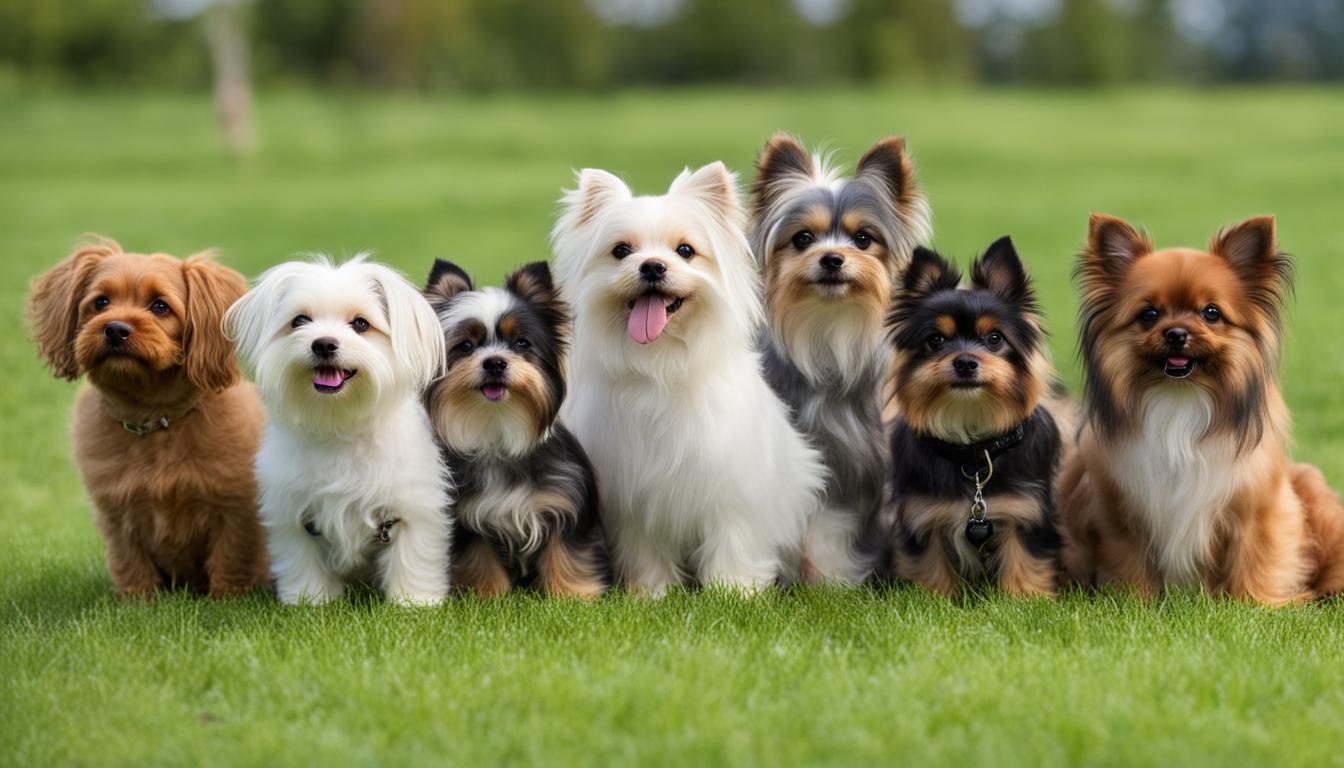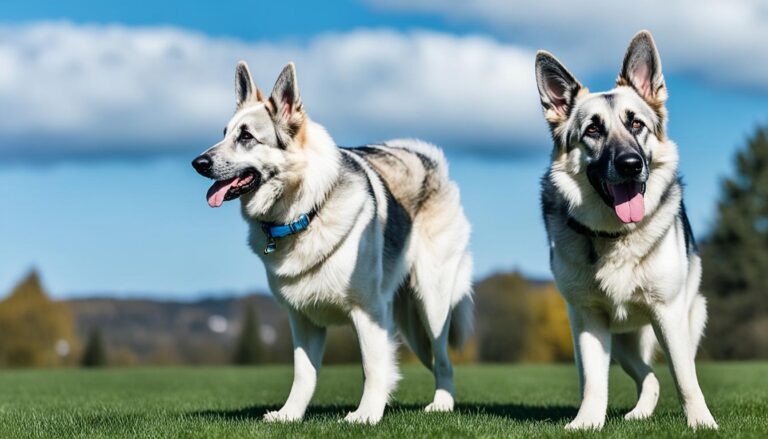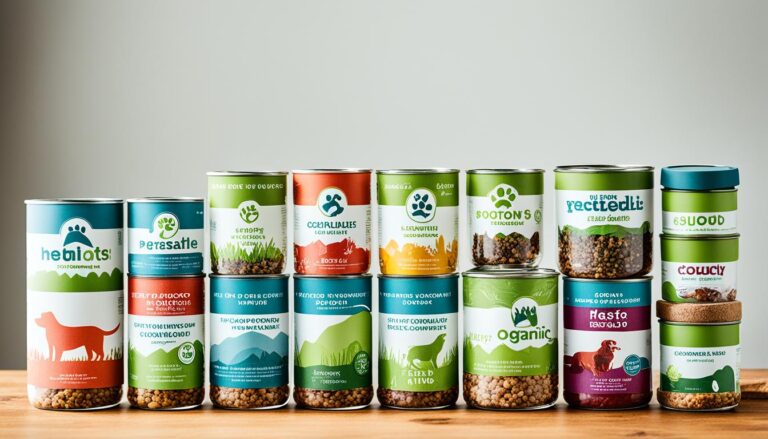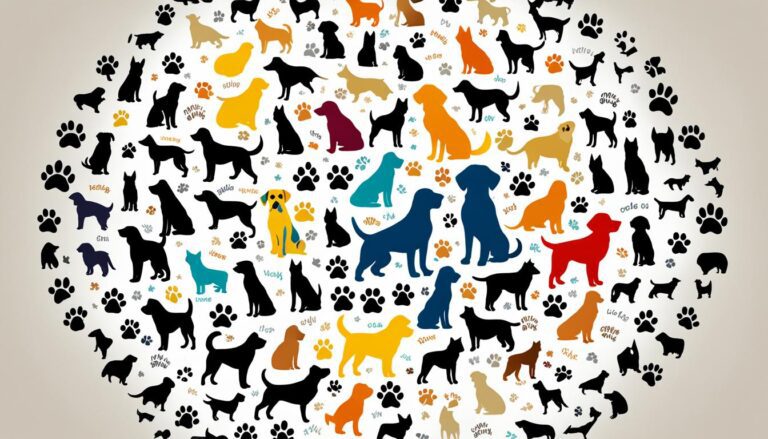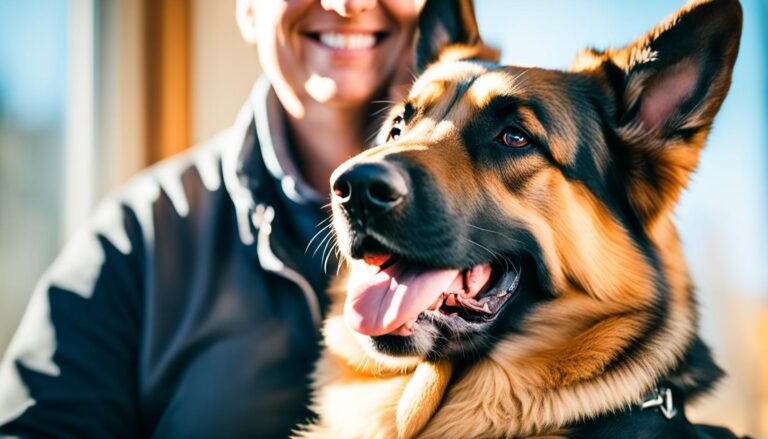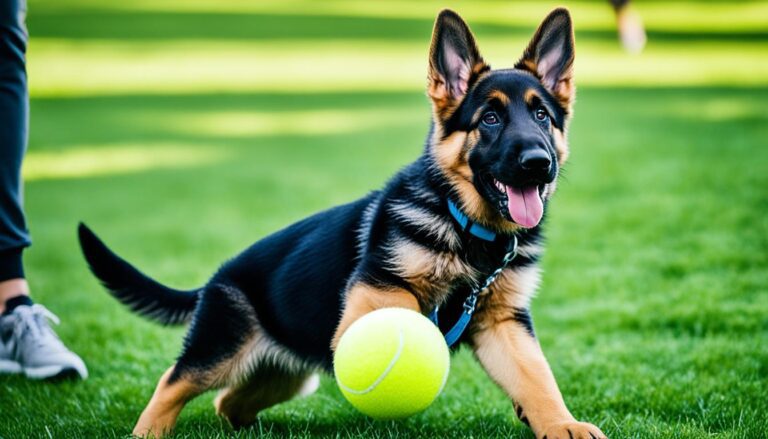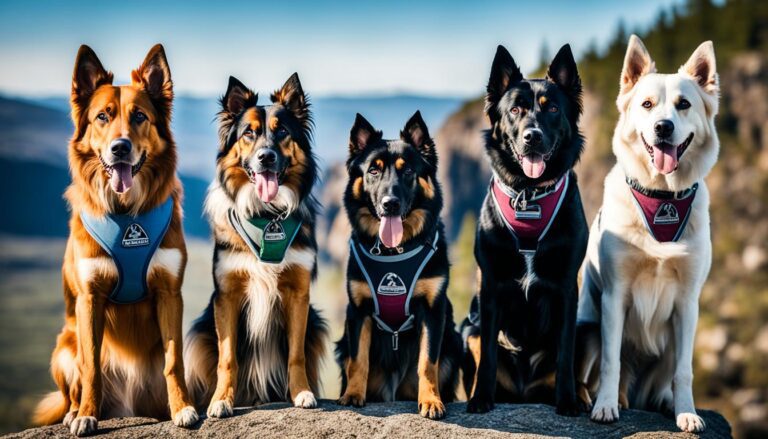Caring for Small Dogs: Tips & Breed Info
Small dogs are adorable and make wonderful companions. Whether you have a Chihuahua, a Shih Tzu, or a Pomeranian, these pint-sized pups require special care to ensure their health and happiness. In this article, we will provide you with essential tips on small dog care, training, grooming, and nutrition. We’ll also explore different small dog breeds and discuss the importance of socialization and safety. So, if you’re a proud small dog owner or thinking about adopting one, keep reading to learn how to give your furry friend the best life possible.
Key Takeaways:
- Small dogs have specific care requirements, including a balanced diet, regular training, and grooming sessions.
- Socialization is crucial for small dogs to develop confidence and good behavior.
- Proper safety measures, such as using baby gates and monitoring playtime, are essential to prevent injuries.
- Regular veterinary check-ups are necessary to ensure your small dog’s health and well-being.
- Choosing the right small dog breed for your lifestyle and preferences is key to a successful pet-owner relationship.
Small Dog Care and Training Tips
When it comes to small dog care, it’s crucial to prioritize their well-being and ensure they receive proper training, grooming, and healthcare. Small dogs have unique needs that require special attention to keep them happy and healthy.
Weight Management and Nutrition
One of the key aspects of caring for a small dog is managing their weight and providing them with a balanced diet. Overfeeding can lead to obesity, which can have detrimental effects on their health. It’s important to feed them the right amount of high-quality dog food that is appropriate for their size and age. Consult with your veterinarian to determine the appropriate caloric intake and portion sizes for your small dog. This helps prevent obesity-related health issues and ensures their overall well-being.
Training and Socialization
Small dog training is essential to prevent behavioral problems and ensure their safety. Small dogs are often under-trained compared to their larger counterparts. Invest time and effort in their training to establish good behavior, proper leash manners, and basic commands. This will not only make them well-behaved companions but also create a stronger bond between you and your furry friend. Additionally, socialization is crucial for small dogs. Expose them to various environments, people, and other animals from a young age to help them become well-adjusted, confident pets.
Grooming for Health and Hygiene
Small dog grooming plays a vital role in maintaining their coat and skin health. Regular brushing helps remove loose fur and prevents matting. This is especially important for long-haired small breeds such as Yorkshire Terriers or Shih Tzus. In addition to brushing, regular bathing, nail trimming, and ear cleaning are essential for their overall hygiene. Develop a grooming routine that suits your small dog’s needs and consult with a professional groomer if needed.
Veterinary Care
Regular veterinary check-ups are crucial for the small dog’s health and well-being. Schedule routine visits to ensure vaccinations are up to date, address any health concerns, and receive preventive care. Your veterinarian can also provide guidance on nutrition, exercise, dental care, and other specific needs based on your small dog’s breed and age. Early detection of any potential health issues can significantly improve the quality and longevity of your small dog’s life.
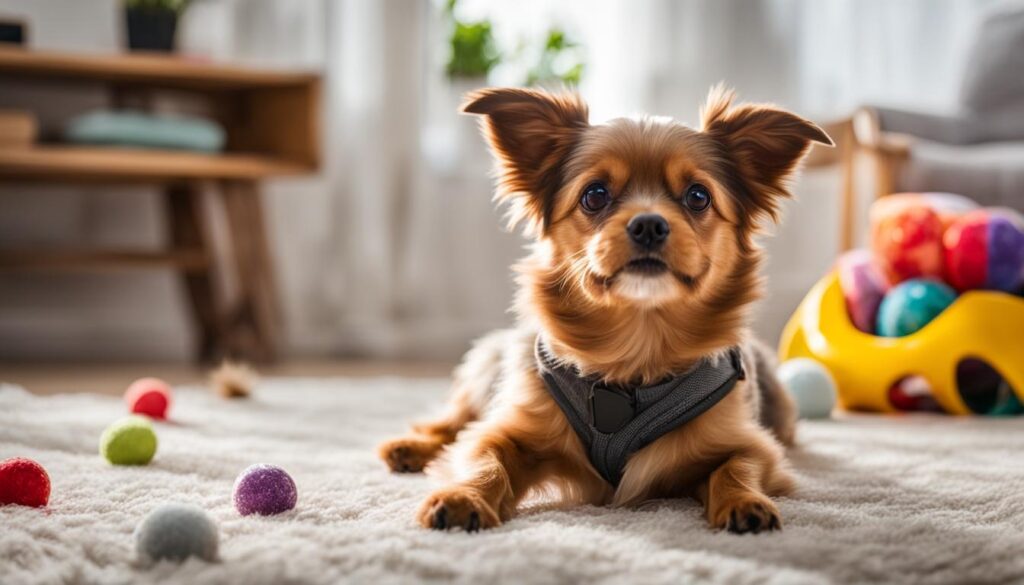
| Small Dog Care and Training Tips | Benefits |
|---|---|
| Proper weight management | Prevents obesity and related health issues |
| Effective training | Prevents behavioral problems and strengthens the bond |
| Regular grooming | Maintains coat and skin health, prevents matting |
| Regular veterinary check-ups | Ensures overall health and detects potential issues |
Small Dog Safety and Socialization
Ensuring the safety of small dogs is essential, both at home and in public spaces. These pint-sized pups may be more prone to accidents and injuries, so it’s crucial to take extra precautions to keep them safe.
One way to prevent falls or jumps that can lead to injuries is by using baby gates and doggie stairs. These measures can restrict access to certain areas of the home and prevent small dogs from attempting risky maneuvers.
The Importance of Socialization
Socialization is a vital aspect of raising a small dog. It helps them become well-adjusted and confident in various situations. However, it’s important to exercise caution, especially in crowded areas, to avoid accidents or overstimulation.
When introducing a small dog to new people, proper greetings and interaction are key. It helps prevent fear and anxiety, allowing them to feel more comfortable in different social environments.
“Socializing your small dog from an early age can help them develop positive associations and build strong social bonds.”
Interacting with Larger Dogs
Monitoring playtime with larger dogs is crucial for the safety of small dogs. While they can enjoy playful interactions with bigger breeds, it’s important to ensure that the size difference does not pose a risk. Supervision is necessary to prevent any accidental injuries during these interactions.
| Safety Measures | Socialization Tips |
|---|---|
|
|
Diet and Nutrition for Small Dogs
Proper diet and nutrition are crucial for the health and well-being of small dogs. Due to their higher energy expenditure, small dogs have different calorie requirements compared to larger breeds. It’s important to ensure that they receive the right amount of calories per kilogram of body weight to prevent obesity and related health issues.
For small breed puppies, providing more frequent meals and calorie-dense food is essential to support their growth and development. Consult with your veterinarian to determine the appropriate feeding schedule and portion sizes for your small dog.
Selecting the right type and amount of dog food is critical in meeting the nutritional needs of small dogs. Look for high-quality small dog food formulas that are specifically designed for their unique requirements. These formulas often provide balanced nutrition to support their overall health and longevity.
Regular veterinary check-ups are important to ensure that your small dog is maintaining a healthy weight and receiving adequate nutrition. Your vet can provide guidance on the best diet and feeding practices for your specific small dog breed. Remember, a balanced diet and preventive healthcare are key factors in helping your small dog live a long and healthy life.
FAQ
What are some common care requirements for small dogs?
Small dogs require proper nutrition, regular veterinary check-ups, grooming, and training to ensure their overall health and well-being.
How can I prevent overfeeding and obesity in small dogs?
It’s important to feed small dogs the right amount of food according to their size and activity level. Avoid giving them excessive treats and monitor their weight regularly to prevent obesity and related health issues.
Why is training important for small dogs?
Training is essential for small dogs to prevent behavioral problems. It helps them learn basic commands, socialize with other dogs and people, and ensures they are well-behaved companions.
How can I prevent injuries in small dogs?
To prevent injuries, it’s recommended to discourage small dogs from jumping onto furniture and using a harness instead of a collar to prevent neck and back strain.
How can I ensure the safety of my small dog?
Using safety measures such as baby gates and doggie stairs can prevent injuries from falls or jumps. Socializing your small dog and teaching them proper greetings and interaction with strangers can also ensure their safety and well-being.
What are the special considerations for small dog nutrition?
Small dogs have different calorie requirements than larger dogs due to their higher energy expenditure. It’s important to feed them the right type and amount of dog food to support their unique needs and prevent obesity.

